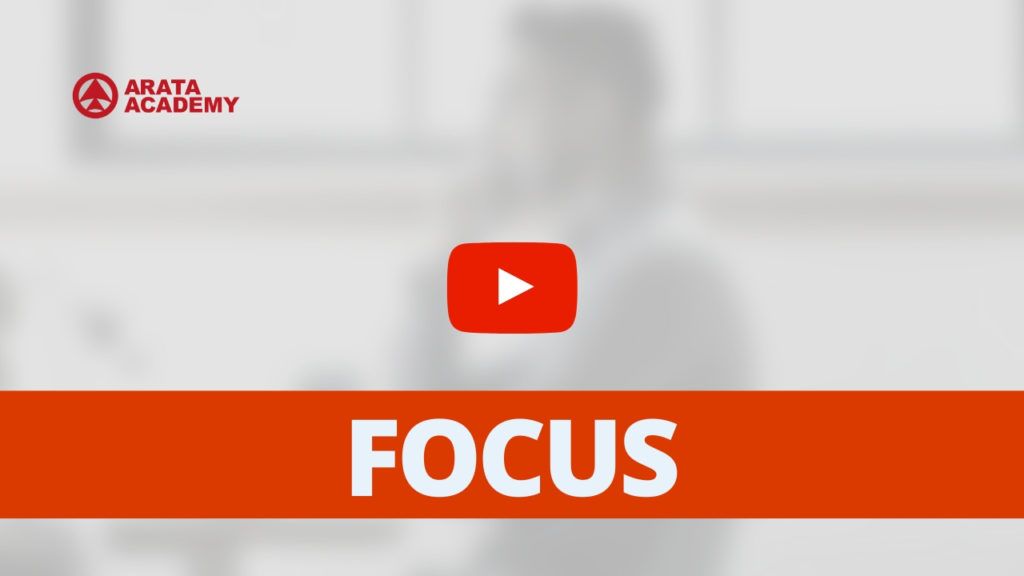Productivity Arata! Why is it difficult to maintain concentration? When we use our attention intensely for a long time, it may cause fatigue. It is called cognitive exhaustion. How to identify this? What signs should we look for?
When we use our attention intensely for a long time, it may cause fatigue. It is called cognitive exhaustion. How to identify this? What signs should we look for?
Wow. Just looking at the signs of a struggling mind already makes us dizzy.
If our attention span starts to decline, all mental activities begin to conk out: we get distracted, our irritability increases … Well, there are the indications that we have mental capacity exhaustion.
And it has everything to do with the previous episode of the Arata Productivity series: we have seen that attention is an investment. A lack of focus means that my attention reserves are empty. And what did I get in return?
In other words, the question is: How are we investing our attention? What brings us good results and enriches our quality of life? And what impoverishes our quality of life?
When I say enriching or impoverishing, it is in the broadest sense possible and not just in the financial dimension. Is money important? Yes, of course, it is the trading tool for the basic services and products that give us quality of life. But there is more than that: A full life is one in which we are where we want, with the people we want, doing what we want, with lots of joy to start a new day. Do you agree?
And how do we achieve this fullness of life? We have to understand what our priorities are.
We have to understand where we need to concentrate, where to focus. We need to understand what deserves our attention in the first place. And attention is like a muscle. Remember? And like every other muscle, it can also suffer fatigue.
You may ask, “Why is it difficult to maintain concentration?” The answer is that there was fatigue, and therefore renewal is required.
To illustrate this, Daniel Goleman tells of a meeting he attended. At one point the group’s attention began to wander. There were parallel chats going on, and some people were discreetly checking email on their mobile devices. It was a sign that the energy of the group was dispersed. Then someone said, “It’s time for a few moments of attention.” He got up and struck a gong.
Everyone immediately fell absolutely silent until the gong rang again. They resumed the meeting but this time with renewed energy. In this company, the staff says the group pauses are efficient ways to clear their minds and give a new dose of energised focus.
Important: this is only an example. Frankly, I do not think you need to import a bronze gong from some eastern country to have your renewal.
The important lesson to write down today is that we have to accept the fact that our attention has limits. This answers the question “Why is it difficult to maintain concentration?”
Let’s take for example our study curve. When we are studying, at the beginning it takes a while to warm up. This is followed by a good performance level when we do very well … and after a while our ideas start to become confused.
This is the point of mental fatigue, when our performance drops and we become ineffective. In other words, our work is no longer efficient. I have to read the same sentence twice or three times, and I still get it wrong or do not understand anything. I’m wasting my time.
That’s why Arata Academy has a course called FOCUS. And one of the lessons is specifically about how to recharge our energy. You can go to this link.
When you enter arata.se/ebookfocus in your browser, you will find a page where I’ll send you an ebook. You also have the option of enrolling in our course if you want to take an additional step to strengthen your focus.
When we come to the point of exhaustion, it is possible to recover our focus. We must renew our attention.
The sequence is: Exhaustion – renewal – attention.
The big mistake is using inappropriate activities to renew. For example, watching television or surfing the Internet are generally not good ideas—they provide too much mental stimulation. What we want is to recharge with high-quality activities. I’ll share the techniques for it – visit this link.

